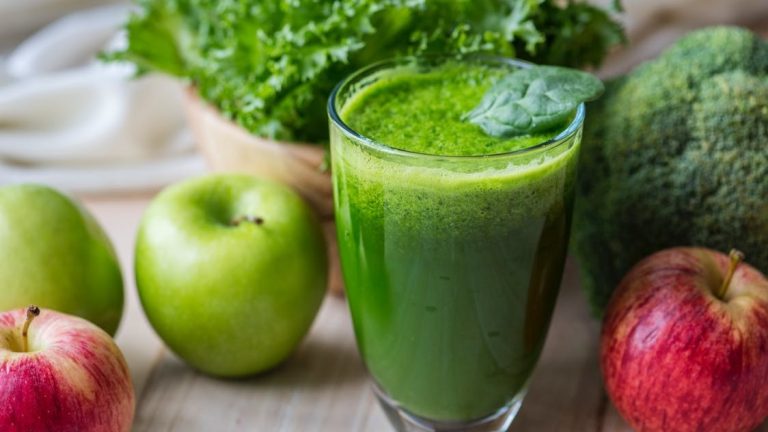September is a peculiar month, loved and loathed in equal measure. On one hand, we yearn for the return to the school-year routine, hoping that this time around, we’ll finally achieve a good rhythm and meet the goals we set for ourselves. On the other hand, it bursts the bubble of vacation bliss.
September also presents a lucrative opportunity for scammers: they lurk, preying on those who deceive, those who sell the idea that your best version is always thinner. It’s the time to appeal to perfect bodies and magical formulas, increasingly exotic, which almost effortlessly erase memories of ice cream, paella by the sea, late-night conversations, or post-swim snacks. None of it matters if they manage to make you feel guilty for indulging in the pleasures of food and summer.
What are Detox Diets?
Detox diets, or cleansing treatments, have gained popularity in recent times. They are often presented as challenges promising rapid weight loss, erasing summer excesses, and framed as a “detox after a period of indulgence” to achieve de-inflammation and improvements in skin, immune function, liver function, and even sleep quality. While they have catchy advertising appeal, do they really work? Are they healthy?
These diets typically involve consuming only vegetable and fruit smoothies, often laden with ginger, turmeric, Nori seaweed, and a hefty price tag; ranging from €50 to €200, especially if they become a recurring plan repeated every few months. The more budget-friendly option involves homemade concoctions mimicking the ingredients commonly found in these magical elixirs.
To enhance their effects, they are often accompanied by lemon water to promote fat loss and toxin elimination, as well as laxatives and diuretics. However, science tells us that lemon water does not promote fat loss, and fat isn’t eliminated through urine but oxidized. What lemon water does cause is enamel erosion.
Detox diets exude an aura of healthiness since they involve consuming only fruits and vegetables for a short period. Seems healthier, doesn’t it? But it’s not.
What Negative Effects Do They Have?
- Fatigue and tiredness: Being low-calorie diets, they can induce fatigue and tiredness.
- Nutritional deficiencies: Since they are not complete diets, prolonged adherence can lead to nutritional deficiencies.
- Non-personalized: Marketed as suitable for anyone who can afford them, they disregard individual health conditions.
- Imbalance: These diets are entirely unbalanced, lacking the appropriate proportions of carbohydrates, fats, and proteins.
- Rebound effect: Weight loss during the detox period is mainly due to fluid loss, but those lost pounds tend to return immediately after returning to regular eating habits.
- Excess of oxalates: Consumption of certain vegetables in large amounts, such as spinach, beetroot, or chard, can lead to an excess of oxalates, hindering the absorption of essential minerals like magnesium and calcium and potentially leading to gallstone formation.
- Unhealthy habits: Detox diets are not conducive to healthy habits; they’re used as a temporary fix for excesses.
So far, it seems these diets are only healthy for the pockets of those who market them. But well, at least they detoxify, right? The reality is that our bodies already perform this function on their own, primarily against toxic substances like drugs, tobacco, or alcohol. The liver, kidneys, lungs, and skin are the main organs involved in detoxification. Our bodies are so intelligent that they cleanse themselves; they don’t need magical potions. Therefore, this proclamation from their advertisements also falls short.
The only detox you need is to stop believing in magic formulas and miracle diets, which will only worsen your health and likely your relationship with food. If you already had a healthy diet, start reintegrating it gently, without restrictions or compensations. If healthy eating wasn’t your norm, seek guidance from a specialist who considers your medical history, preferences, and lifestyle; essentially, a professional who tailors their approach to you. That will indeed be a good start to the academic year, free from deception.
Conclusion: Rethinking the Detox Deception
Detox diets, with their promise of rapid weight loss and a reset from dietary indulgences, often captivate individuals looking for a quick fix. However, beneath their alluring facade lies a myriad of health risks and dubious claims. As we navigate through the maze of wellness trends, it’s imperative to scrutinize these diets with a critical eye and prioritize evidence-based approaches to health and nutrition.
Rather than succumbing to the allure of detoxes, we should focus on fostering sustainable lifestyle habits that promote overall well-being. This entails embracing balanced nutrition, regular physical activity, adequate sleep, and stress management techniques. Additionally, consulting with qualified healthcare professionals can provide personalized guidance tailored to individual needs and goals.
Ultimately, the quest for health should be approached holistically, recognizing the interconnectedness of physical, mental, and emotional aspects. By fostering a mindful and compassionate relationship with ourselves and our bodies, we can cultivate lasting habits that nurture our well-being in the long term, free from the shackles of detox deception.


